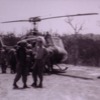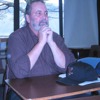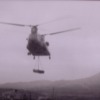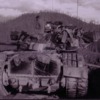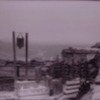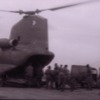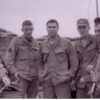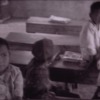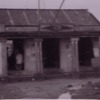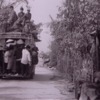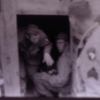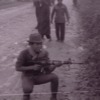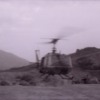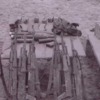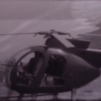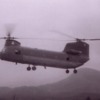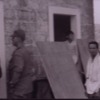

If you see this message, that means that you either do not have the latest version of Adobe Flashplayer installed (install it here) or you have blocked the ActiveX control for Internet Explorer. Please reload the page and allow the control.
 |
 |
|
| Mr. Connolly: 2006 | ||
| Mr. Connolly tells of the valor of the VC. | Mr. Connolly recounts a sneak attack by the Vietcong. |
David Connolly was born on May 11, 1944 and grew up in Weston, Massachusetts. He volunteered to join the army and attended military school. Mr. Connolly was strongly influenced by his older brother and father, who were both members of the army. He was a member of the 101st Airborne, and served in various areas of Vietnam from 1968, right after the Tet Offensive, to 1969. Mr. Connolly’s experiences help show that most soldiers in Vietnam were not the stereotypical “baby killers,” but rather men trying to learn more about themselves and help others who were in need.
Q: State your name for the record.
Mr. Connolly: David J. Connolly
Q: When were you born?
Mr. Connolly: 5/11/44, a handsome young man.
Q: Could you describe where you grew up?
Mr. Connolly: I grew up in Weston. Like Wayland, a very affluent town. I used to joke we were the only poor people, my father was a real estate broker.
Q: What was your childhood like?
Mr. Connolly: I’m the youngest of five children. And I’d have to say my oldest three brothers and sisters were very high in academia. My oldest brother went to MIT, my oldest sister went to Trinity and my next brother went to Amherst. My brother right older than me was not gifted academically but was a very good athlete. Captain of the football team and went to a military college called Norwich which then again influenced me because he was an ROTC and that’s why I bring it up.
Q: Did you know of any world events going on at the time? Were you aware or were you just a kid in school studying?
Mr. Connolly: I was born at the end of the Second World War so obviously I knew nothing about it. My father was too young for the First World War and too young for the Second World War He spent time in steel mills and places like that supporting the wars. But for the Korean War I was just old enough to understand what was happening. And my family had a big farm and they had a big field and the dockets from Boston used to come and play baseball there every year. And venders would come and there was a lot of talk about the Korean War but I was a little boy like 6 years old, 7 years old. But I could hear the men talking and I could hear the excitement so I was aware of the Korean War.
Q: Was communism that something that was talked about when you were growing up? Was that an issue?
Mr. Connolly: It wasn’t a big issue for me but I think I bought into the fact that we were in Vietnam because we had to put an end to communism somewhere. And who would have thought that President Regan would have put an end to it all with the tearing down of the wall and putting an end to the communist system.
Q: Were you drafted into the war? Or because of all the excitement, like your father’s friends, did you just want to join?
Mr. Connolly: I was not drafted into the war. That’s why I brought up my brother’s influence before. I went to ROTC when I was in college. ROTC stands for Reserve Officer Training Core. So when you go into the service you have a 2 year commitment and if you’re in the regular army it is a 3 year commitment. You go to drills and you get some people training while you’re still in college.
Q: What did you have to do for your training?
Mr. Connolly: When I was in college at ROTC?
Q: Yes.
Mr. Connolly: Basically what you do at ROTC is you drill, you do marching, and you do Viet classrooms and actual drilling and then usually after your junior year you go to a summer camp and this is more realistic training. I think it’s called the Infantry Officers Basic Course. But I had to make up a Russian course at the end of my junior year so I went after my senior year. And then when you go into the army, you go through an Infantry Officers Basic training again and then you go into your specialty and then you go from there.
Q: So when the army started to get involved in Vietnam, how did you become involved in it?
Mr. Connolly: I was very influenced in high school in English Lit and I was particularly influenced by a novel called The Red Badge of Courage. I don’t know if you guys still read it in high school or not but it was Joseph Conrad who wrote it and it’s about a young man that’s going off to the Civil War and he goes along a path with another young man and they get to a spot and they realize that one is gonna go fight for the Confederacy and one is gonna go fight for the Union and they hadn’t realized they were gonna go in different directions. But it’s also a lot about how he’ll deal with his courage about being involved in the Union and I guess it’s… talking to three charming young ladies, I guess it’s more of a male thing, I dunno, but it’s trying to pan out if you’ve got the courage inside yourself. So I went to war to know my true inner self.
Q: So you were trying to figure out if you had the courage or not?
Mr. Connolly: That’s right.
Q: Mr. Delaney told us you were in the 101st Airborne. How did you get into that division? You said you went to college and did all that training for a couple of years but did you immediately go into that division or was it gradually stepping up…?
Mr. Connolly: When [I got] out of college, I was assigned to Fort Benning, Georgia. It’s the biggest fort in the world, for infantry training. And it was overcrowded so I got kicked out for a week because they didn’t want to kick out someone who was assigned to Fort Campbell or someplace else because it would screw up all their travel plans. But I was assigned to Fort Benning and I was at fort Benning so I was just on a casual status for a while. And then I went to training and then when I graduated from that I was assigned to Ranger training command, which meant… normally a non- ranger qualified person would not be assigned to ranger training command but then had a lot of people going through what they called an infantry N.C.O. academy. They needed a lot of capable people so they picked people that were capable and they sent them to this academy. And I taught demolition and I taught small patrolling, small unit patrolling. And then I was out playing golf at the Officer’s Club having dinner and a few cocktails and I got a call at 9:00 at night saying “you wanna go to ranger school?” “Yeah of course I wanna go to ranger school.” Normally the guy that’s been there for 2 years wouldn’t get into Ranger school, it’s too much training for the time he’s been committed. So he says “alright report 5:00 tomorrow morning.” And this is about 9:00 at night and I’ve got a [bowl] on and I’m like “oh shit!” so I went to Ranger School and that is one of the reasons I went to the 101st. And because I was so late in getting in to go to Ranger School and I was already slated to go Jungle School because if you hadn’t gone to Ranger School you got to go to Jungle School, it was only two weeks long in Panama. So I got to go to both of them and I was assigned to 101st airborne.
Q: Did you feel really proud that you were assigned to the 101st Airborne?
Mr. Connolly: Oh very, very proud.
Q: It seems like it has such a good reputation.
Mr. Connolly: I’m very, very proud of my Ranger [tag].
Q: What were the emotions like for you? Getting that phone call and saying you could go to Ranger school?
Mr. Connolly: You didn’t have much time. Cuz you get there and you get up at 4 or 5 in the morning and you push and you push and you push and you get tired at night. They put the stress on you.
Q: Was that the first war you fought in?
Mr. Connolly: Yes.
Q: What was that like when you had to say goodbye to your family and friends?
Mr. Connolly: Well you get 30 days off before you go over. And when I flew into the country, I thought the whole world was being blown up. But it was just heat lightening. Exploding, all those things flashing all over the place. But then I realized it was just heat lightening.
Q: Were you scared?
Mr. Connolly: It was pretty scary. But then you get into the city, you get onto these buses and you go through all these places. A lot of poverty… very different, very new.
Q: Did you think about how you were putting your life on the line?
Mr. Connolly: The most important thing to me, I was more scared of the guilt if I made a mistake if someone under my command was killed, than if I made a mistake myself. I got the best education I could going to Ranger School and Jungle School and so I felt I was prepared. And when I got over there, I was lucky enough to know the company commander of the training company. They put you in country training for a week or ten days.
Q: How old were you when you went over to Vietnam?
Mr. Connolly: I would say about 22.
Q: If you were the commander, were you commanding boys older than you or younger than you?
Mr. Connolly: I would say mostly younger. A platoon leader commands about 30 people.
Q: If you were 22, do you think you matured faster than you would have if you hadn’t been in the 101st airborne and gone through all these schools and gone over to Vietnam at a relatively young age?
Mr. Connolly: I think that’s probably true.
Q: Was it difficult to adjust to Vietnam? I know you said it was different but with the weather, what was that like?
Mr. Connolly: Vietnam is a very funny place. It has three different geographical areas. It has the rice patties, it has the jungle, and it has the mountains. When you go from one place to another, it’s very different. In the beginning I was in a place that made fear in a lot of peoples… it was called the Ashaw Valley. I think you might have heard of the Yellow Brick Road. When supplies came out of Laos and Cambodia they came out and went down the Yellow Brick Road.
Q: When you first went over to Vietnam, where did you go?
Mr. Connolly: When I graduated from the training company and everybody said where are you going? And I said I’m going to the second or [the three 27th]. The No Slack battalion. You’ve heard of the Geronimo, when they jump out of airplanes? Well that was a different battalion. Ours was the No Slack. And we added the f-word to it. We were very proud of that… but they said, you’re to [report to] crazy sergeant Charlie Bequest battalion, you poor son of a bitch. And not one person told me that, but 10 people told me that. So I get up there about 11:30 at night. The training was in [Longbetta] and I was way up by Wei in the north part. And I get in there and I report to Sergeant Charlie Bequest. Well he’s got an olive drab t-shirt, olive drab underwear, a half a bottle of Jack Daniel’s and a lot of radios in front of him. And the first thing he says to me is “are you worth a shit?” and I says “I think so, sir.” He says, “Think so?! Either you are, or you aren’t!” And then he puts his bear foot up on my stomach and says “A little fat, aren’t ya?” And I’d been off for 30 days, put on a few pounds, enjoyed my mother’s cooking. So he says to the administrative guy “where’s he gonna go? A Company, no I wanna send him to B Company.” And he goes on the radio “I got a ranger qualified guy comin’ up for you tomorrow.” This is 11:30 at night; I haven’t gotten my gun or anything yet. “Be here at my [pad] at 5:00 in the morning, ready to go.” So on the way out I said to this guy “he’s a little tough on me.” The guy said “oh he was easy on you! The guy before you wasn’t ranger qualified, the lieutenant said to him ‘son you’re going on in a body bag but don’t you take any of my troopers with you.’” Welcome to the ‘nam! So at 5:00 in the morning I got out on the helicopter, went out to him, at sort of a fire support base, a lot of guns going off. Waited a long time, got out, you have to realize they’re out in the boonies and have to find a place for the helicopter to land, cut trees and everything. Got out of the helicopter, they’re throwing a guy in a helicopter who stepped on a [bungee stick], legged all ripped apart, blood all over the place and I thought “oh my god” and you look at all these guys with beards and they were unkempt and that night I went up and wrote my first letter home and then there was a fire fight. What happened was they were a hilltop away from us and the Americans got pinned down by a machine gun and they called in for an air strike. When the air jets came in… I never called for an air strike in my life, always used artillery. When the jets came in the wind shifted, and they took out a whole American company. It was a friendly fire. And we had to go in the next day and take all their ruck sacks out. Americans came in after they had killed all these Americans by mistake and took out all their bodies out and took their wounded out but they didn’t take their ruck sacks out. So they made us go in the next day and take their ruck sacks out and I’m looking at these guys who are going through the ruck sacks like they didn’t care that people were killed. They’re looking for food and I thought “these guys are animals!” and about a week later I was one of them.
Q: What was going through your head when you saw this… that could easily be you, you just got to Vietnam and you have to go through all these wounded people, were you more scared at that point?
Mr. Connolly: I try to remember back and I think I answered honestly when I said I was more scared of someone getting killed under my command because of me making mistakes than getting killed myself. I should have been killed three times, I was just lucky. One time I came out of a building and I could feel the mortar coming in right across me and I broke out in a cold sweat because I knew I was gonna be wounded but it never went off because it was [dug]. And it happened again quite similar. One went in so deep it did go off but it went so deep in the rice patties that it was like a cartoon, blew up all the dirt, nobody was hurt but all this dirt flew.
Q: Did you believe in the domino theory?
Mr. Connolly: I don’t know if I was familiar with the domino theory but I guess I believed you had to draw the line somewhere, you couldn’t let them take over everything.
Q: When you were fighting there did you think that the VC was more about fighting as communists seeking to spread their political system or more nationalists?
Mr. Connolly: I have to tell you when I got there; I wanted to do my job I wanted to kill the VC and the NVA. In the middle I found my job to save my own unit flight and I drew an immense respect for the VC. I believe they believed totally in what they were doing. One instance, we had them surrounded with mortars and firing, there was no way they wouldn’t be killed. We told them to surrender and they basically said…. I just had an immense respect for them. I’ve been down caves with blood trails and there were women there who would make their bras out of parachutes and they just lived off the land and survived and fought and believed in what they were doing.
Q: Did you ever go into some of the villages? How could you distinguish the VC from the non-VC? Did they blend in?
Mr. Connolly: Very, very difficult. One instance I had, I was waiting for orders and I was calling them back and I’m in the middle of the field and I’m telling them “I don’t wanna be here.” You don’t stay in the middle of the field where people can see you. And all of a sudden I saw people going to a funeral type thing. And something hits me wrong, something’s wrong here. And I call and I say to my commander, who told me not to move, I said “I don’t care what you say, I’m moving because something’s wrong here.” And as soon as I started moving, [rows] went off to the right, [rows] went off to the left, [rows] went off to the front and luckily we got over the other side of the railroad tracks and under cover. And that’s what they were doing; they were at this funeral who were obviously bringing in the mortars. You couldn’t tell, you couldn’t tell they were VC. And another time one of my people said “this guy is a VC.” And he was just a little kid, 15-years-old, 14-years-old, and I started questioning and he started crying and I said “get rid of him, just get him out of here.” I wasn’t any good at the hard stuff when you got a little kid like that.
Q: Could you tell us about your hat? [Hat with bronze star on it]
Mr. Connolly: This one is the Bronze Star. Mostly everyone in Vietnam got one; I got a couple of them.
Q: What exactly is it?
Mr. Connolly: Well you start from the top, the next one above this one is the Silver Star and then there’s one more and then it’s the Congressional Medal of Honor. Usually in combat for something you did.
Q: How did they award them to people? How long after you were in combat did you get the Bronze Star?
Mr. Connolly: Well let’s see the Silver Star might be for something individual you did. Bronze Star probably at the end of your Vietnam service and you’re in combat you get your bronze star. I got a couple of what they called combat [aerials]. The 101st before they went to Vietnam was the 101st Airborne, I’m sure you’ve seen Band of Brothers. But since there was no geographical area where you could land and parachute they wanted to make it an air mobile. But one of the head guys who was one of the head guys in the 101st said “no way are you gonna change their name.”
Q: So when you were in the 101st did you jump out of airplanes?
Mr. Connolly: You didn’t jump out of airplanes with parachutes but you jumped out of
Helicopters from maybe 5, 6 feet from the ground. So let’s say you want to take over an area, right? So you want to go in there with a combat assault. So what you do is you go in and take the high ground so you go in and clear the mountaintops and set up some artillery fire support bases so when you go down below into the jungle you can have some artillery support. And if you’ve ever seen a battle, even the Second World War, all these prep things were there. Artillery, or air strikes, or even naval guns.
Q: how long did you stay at each place you were at? Did you stay for more than a couple days, a month at each time, or were you constantly on the move?
Mr. Connolly: Yeah that surprised me, a couple things surprised me. I thought when I went over to Vietnam I’d be platoon leader and be platoon leader for year. So when I first went over there we were in the Ashaw Valley and that was one of the most traumatic things I did. I was in the Ashaw Valley and I see these people coming down the Yellow Brick Road. So then I crank up our guns in the mountain top and I crank up the guns in the rear and I crank up the naval guns to shoot for about 100 miles. And those poor bastards, must have been 30 or 40 of them must have been coming down from way over in Cambodia and I blew them all away. But the mountain top called Eagle’s Nest was so high that when the bad weather got bad the helicopters couldn’t get in so they couldn’t support us so they closed that down. I had been a demolition instructor in the United States so they assigned me to blow up all the extra ammunition. So I blew up all the extra ammunition and I was a mile away and there was still shrapnel coming over my head. I’d say we were there about a month and the reason we left is cuz the weather got so bad. And then I went to along Highway 1, which runs all the way from about south of Denai all the way up to Wei all along the coast. And we guarded three different towns there. Instead of being out in the jungle now we were out in the rice patties. We were probably there about 2 or 3 months. While I was there one platoon would guard where the highway crossed the river. And the other two platoons would go on patrol. While I was back guarding the one along the river, there was an abandoned school house that had been blown apart so I got my guys and we got down there and we rebuilt the school house and opened it up again. So it was something positive. And then my boss had changed from Sergeant Charlie Bequest to someone whose nickname was “Ramrod.” He appointed me in charge of Civil Affairs. So I did Civil Affairs for about 2 or 3 months, which meant I tried to get some projects done. And there was one project which was the number 2 project in Vietnam. I got it done by… I had marines who were going too fast and instead of giving them a ticket I’d say “be over here Sunday and bring your dump trunk.” And the Vietnamese would fill it with shovels and they’d cut the 2 by 4’s out of telephone poles and we got this whole village shopping area done. But then in the end I went back to being a platoon leader but I was support platoon leader, bringing in the supplies.
Q: Were you counting down the days until you could go home?
Mr. Connolly: What’s that? Oh yes. It was the soldiers that would always say it was the French that were in Vietnam before the Americans so the French Vietnamese Americans saying “TT time left in the ‘nam.’”
Q: What did you do in your down time?
Mr. Connolly: I don’t know if I can answer that one. I’m going to take the 5th on that one.
Q: What did your family think of the letters that you wrote back to them? What did they write back to you?
Mr. Connolly: I don’t really remember, I’m sure they were concerned. I’m the 5th child so my mother was going to name me ‘Quentin’ but her brother David wrote to her in the Second World War, but he died. But I don’t remember any specific letters.
Q: Did you think that America was going to win the war?
Mr. Connolly: Um…that is a very difficult question because the staying power and the politics of the war make it very difficult to win the war. And on the opposite side, maybe we shouldn’t have been there. I’m not a fan of the war, maybe it was the wrong time, but we have to go all the way, once you commit yourself, same as Iraq. You know, once you commit yourself, we slept through Iraq, we won the war, but we can’t win the peace.
Q: What were the Vietnamese like?
Mr. Connolly: Wonderful.
Q: Did you fight along side them?
Mr. Connolly: [I had a kid… a true hoet]. They would capture, they would surrender and send them to a school. And after they would come fight with us, they were former Vietcong. He was great; he would catch these little crabs and cook them up for me. And one time he wanted to visit his mother, but it was against the regulations and I couldn’t let him go, but he came back. On the other hand I’ve been down blood trails, and this guy was VC 6 months ago, and now I’m along side him, I said, “I think I’m going to pull back.” I liked him. When I was involved in the civil affairs. I got this thing built, it was really wonderful. It was the number 2 project they wanted done. When I left Vietnam they threw me a party. I knew they made $5 a month, it cost them a months pay, each one of them, to throw me a party.
Q: You said in Vietnam there was the jungle part, and the rice patties, was each one really different? Which was the best climate you could be in? Did it rain a lot there?
Mr. Connolly: Yeah it would, it depends, and it could be cold. During the day it was very warm. It could be over 100 degrees.
Q: The backpacks you guys had must have weighed a lot with all your guns and equipment?
Mr. Connolly: Yea it’s amazing how heavy they are. I mean you look at the guys in Iraq its amazing how many pounds, the poundage on your back is amazing. When you’re walking through the jungle you need 12 canteens of water all the time, you needed to hydrate yourself all the time. I remember one time a guy broke down and said ‘I can’t do it anymore” and you have to pick them up and carry them yourself.
Q: Did you do any search and destroy missions?
Mr. Connolly: Sure…uhh…I would say I did a lot of different ones. Once time we knew they were, the second time, not in the jungle, but when I got to the highway, the enemy to the mountains in the daytime and come to the highways and come out in daylight to shoot us. So we knew once in the mountains they had a lot of caves, so you prep that with a lot of artillery, and go down into the caves and you can see the little girls bras made of parachute, and we would go down and I would be like “what am I doing down here?” because I am a big guy, and if I find them I will shoot them or they are going to shoot me. I said “I need to get out of here” because I am going to blow my ear drums out down here.
Q: Where there any close calls with booby traps, did you find any underground tunnels?
Mr. Connolly: Yes, I was just talking about the blood trails and the underground tunnels. I was never in one that had a hospital. You were asking me about booby traps. As soon as I got out of the helicopter a guy stepped on a booby trap. There was a piece of bamboo with sharp on the end, so if you step on it splinters your whole leg. They have trip wires too.
Q: What exactly is a trip wire?
Mr. Connolly: Well, trip wire can be used to pull anything; you can use a hang grenade, pull out of the pin, and use it for that. You can use it on a clay mine.
Q: Did you ever make a lot of those? Did you ever set any?
Mr. Connolly: No, not trip wires. I’ll tell you what we used to do. We were on a fire support base, what we do is we call these ‘mad minutes’ to discourage the NVA or VC to creep up on us. We would pick a time, like 3:22, and would wake up, and we were fire all over the place for 1 minute and go back to sleep, and discourage them. We never knew when they were coming.
Q: Where you aware of what was going on in the US, did you hear news in Vietnam?
Mr. Connolly: I think so, when I was on my last job, I shouldn’t have done this, but I had a little radio, the last helicopter of the day would have a case of soda and a case of beer, and I would be listening to my little radio.
Q: So did you know that there were a lot of anti-war protests going on back in the states?
Mr. Connolly: I think so.
Q: What did you think of those?
Mr. Connolly: Well you know you, it’s the problem, [true or general patting], other people were right at the end of the WWII we gave too much area to the Russia, same thing to Korea we held a line and we couldn’t go over a certain period of time, same thing in Vietnam. We did things we weren’t supposed to do. I know for a fact that I killed at least one person in Laos. I know we weren’t in war in Laos, but these people would come over the Yellow Brick Road, and unless you wanted to go up there and do that, you were always going to have a problem.
Q: What was going through your mind when you knew you shot a person intentionally or non-intentionally?
Mr. Connolly: I never shot someone at close range, but I told you the story how I killed a lot of people on a fire off range, I never thought about it too much, one time I was telling a person and I just broke out to a person telling the story, crying. But on the other hand if I wasn’t killing them they would have been killing us.
Q: Would you say the men you were with were upset about being at war, or would you say their morale was pretty high?
Mr. Connolly: It’s the same thing you’ve probably seen in movies, being in the 101st Airborne, such an elitist group like that, with a lot of Mexicans, a lot of blacks, and I had one guy that got a ‘dear john’ letter, you know what a dear john letter is?...you know its a letter a man gets when his woman writes to him breaking things off. Anyways, this man just started shooting at things, and he started shooting at jeeps. And I had another guy shooting at a jeep and I said, “What are you shooting at that for” and he said “it’s the enemy” and I said, “the enemies don’t’ have jeeps!!”
Q: Did you find that there was racism?
Mr. Connolly: I don’t think in the unit there was, like when I got there I had a black guy that had a little time left in the unit, when you have someone with little time left you bring them in closer so there isn’t [as] much danger that they have to face.
Q: Where you there for the Tet offensive?
Mr. Connolly: Just missed it. I was one hill top away from Hamburger Hill, they ran away from that hill they came over to our hill and we killed a whole mess. One disrupting thing is we would kill someone and put them in the helicopter, but one time the rope broke and the bodies fell to the ground. And now you can walk through the place and see bodies hanging from trees. And the odor wasn’t too good.
Q: Were you also there for the My Lai Massacre?
Mr. Connolly: I don’t know if I was there, or heard about it after?
Q: What did you think about it?
Mr. Connolly: You know, I can understand it, because [someone] was telling you about that one guy firing away at civilians and I think it’s terrible.
Q: Leading back to the question about anti-war protesters, were you at home for the Kent State incident or were you still in Vietnam?
Mr. Connolly: I have no idea where I was.
Q: What did you think of Nixon’s plans for Vietnamization, and giving the Vietnamese more power?
Mr. Connolly: I don’t know, I don’t have a whole opinion on that.
Q: Do you see any parallels between Vietnam and the war we are fighting right now in Iraq?
Mr. Connolly: Well, terrain wise, they are completely different.
Q: Do you think Bush or any people fighting in Iraq could have taken any lessons from Vietnam and apply them today?
Mr. Connolly: I don’t think they are really related.
Q: So when you were coming home from Vietnam, were you happy?
Mr. Connolly: Very happy!
Q: When you came home, what was the response like from the people?
Mr. Connolly: I don’t really remember anything too striking, people ask you about delayed reactions. I woke up in the night with a lot of cold sweats, I was in Cambridge one time and a bus back fired and automatically I was underneath another bus crawling around thinking in my mind that it was the enemy firing.
Q: Have you been to the Vietnam Memorial?
Mr. Connolly: No, but I would love to go. As I said, or maybe I didn’t, I was lucky because I didn’t have anyone under my command killed, and I only know one other man killed, and he was very nice, when you are in the rear on the fire base you can’t have a round in your chamber but when you on patrol you have to put a round in your chamber, and he didn’t and he ran right into Vietcong, and he didn’t have anything ready and they all just started shooting and he was killed.
Q: Did you take away any friendships?
Mr. Connolly: Two things I really regret is that I didn’t have a camera, so I couldn’t take any pictures, and also that I don’t really talk to any of the men that I was there with. My company commander grew up in New Orleans so I’m going to try and look him up.
